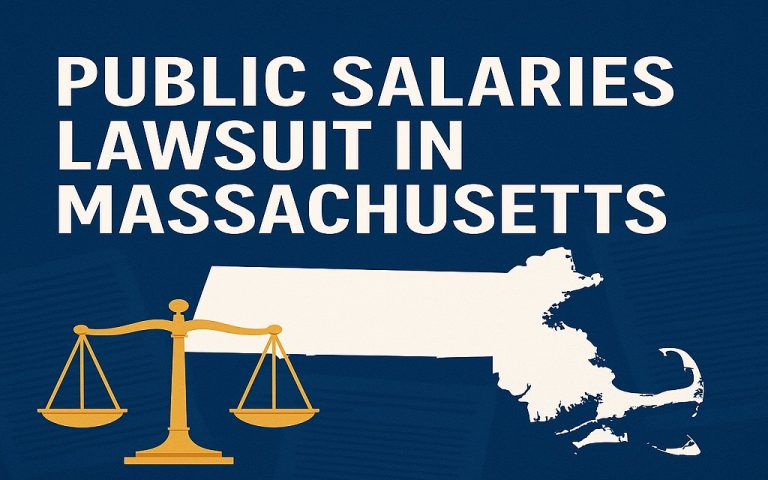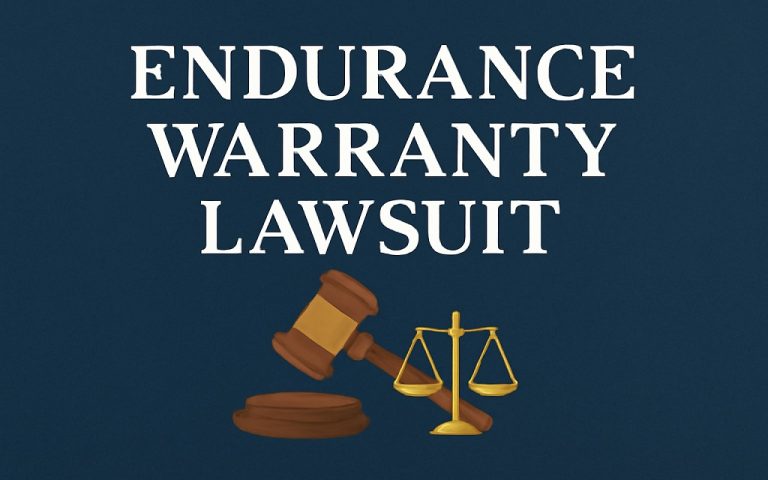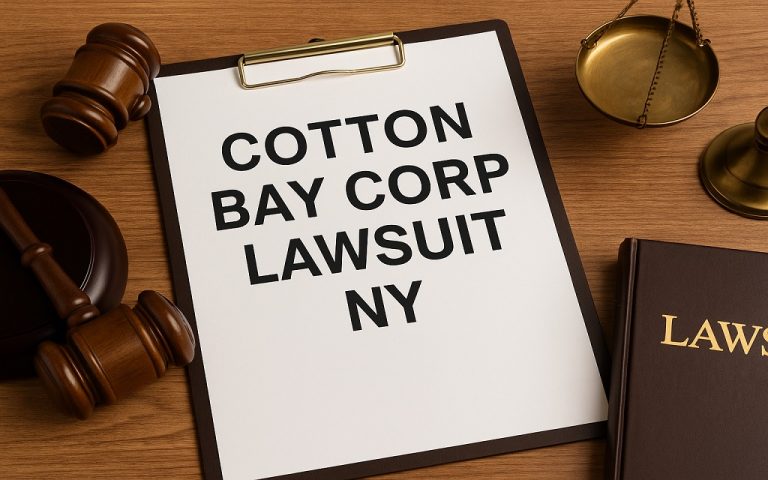You may be familiar with the hazardous water at Camp Lejeune. Many people now face health problems due to that contamination. The Camp Lejeune Justice Act of 2022 allows the lawsuit to be filed in the United States.
Recognising that victims have the legal right to seek justice is essential. You could qualify if you worked or lived at Camp Lejeune between August 1, 1953, and December 31, 1987. After years of campaigning by troops and their families, Congress ultimately passed the bill. The law overrides immunity protections that once blocked claims. Courts are reviewing lawsuits involving tainted drinking water. Compensation for harm or wrongful death is sought in every case.
What Is the Camp Lejeune Lawsuit?
The Camp Lejeune complaint concerns exposure to contaminated water in a U.S. Marine Corps facility. From 1953 to 1987, residents and employees drank tainted water. Among other problems, the exposure resulted in birth abnormalities and cancer.
The Camp Lejeune Justice Act 2022 now allows you to make a claim. Victims and their relatives can seek compensation in court. The law offers you a clear route to justice and eliminates obstacles.
Who Can File a Camp Lejeune Lawsuit?
You should check if you meet these criteria:
- Spent 30 or more days at Camp Lejeune between 1953 and 1987
- Lived, worked, or served on base
- Developed cancer or serious illness linked to toxic exposure
- Lost a loved one due to related illness
You can also file on behalf of a deceased person. Courts accept wrongful death claims under the same law. Surviving spouses, children, and parents may qualify. Civilian workers exposed to water while on base also have legal standing. Family members who live in base housing also meet the requirements. It is important to document both exposure and diagnosis.
What Chemicals Contaminated the Water at Camp Lejeune?
You should know that four major toxic chemicals caused the crisis:
- Trichloroethylene (TCE)
- Perchloroethylene (PCE)
- Benzene
- Vinyl Chloride
They can all lead to various illnesses, including cancer. A 2013 CDC report connected them to renal failure, bladder cancer, and leukemia. Investigations revealed pollution from dry cleaning waste, leaky tanks, and industrial spills. Tarawa Terrace and Hadnot Point were the water systems that were most affected. Residents drank, bathed, and cooked using water containing carcinogens for years.
What Health Conditions Qualify for a Claim?
You may suffer from serious illness due to exposure. Here are the most common medical conditions recognized in claims:
- Kidney cancer
- Leukemia
- Bladder cancer
- Liver cancer
- Breast cancer
- Non-Hodgkin’s lymphoma
- Parkinson’s disease
- Aplastic anemia
- Multiple myeloma
- Scleroderma
- Female infertility
- Miscarriages
You should ask your doctor to confirm any diagnosis. You will need strong medical records to support your claim. The VA and CDC have released lists of illnesses with known or possible links. Evidence may include lab results, pathology reports, and hospital discharge summaries. Claims with clear proof tend to receive faster attention.
How Did the Water Become Contaminated?
It is important to know that improper waste disposal caused the contamination. Military operations leaked fuel and solvents into the ground, and civilian dry cleaners near the base added to the pollution. Water testing from the 1980s revealed dangerous levels of toxins. Reports showed some chemicals reached up to 3,400 times the safe limit.
Studies traced sources to underground storage tanks and waste pits. Poor regulation allowed toxins to seep into groundwater, and in some cases, faulty infrastructure made contamination worse. The Marine Corps did not warn families in time, and many victims only learned about exposure decades later.
What Does the Camp Lejeune Justice Act Provide?
You can now sue the federal government directly. This became possible after President Biden signed the PACT Act in August 2022. The Camp Lejeune Justice Act appears in Section 804 of that legislation.
You must first file an administrative claim with the Department of the Navy. After six months, you can file a lawsuit without response or denial. The law gives North Carolina’s Eastern District federal court exclusive jurisdiction. No other court may hear these cases.
Legal experts say the act levels the playing field. Veterans, civilians, and families now have access to legal relief. Before the law was passed, most claims were dismissed on technical grounds. You now have a straightforward process to seek financial recovery.
How Many People Have Filed Camp Lejeune Claims?
It is important to know that over 408,000 claims were submitted by April 2025. Courts in the Eastern District of North Carolina are now handling over 2,700 lawsuits, and these numbers grow each week.
You should not wait. Legal experts warn the court may limit total payouts. Early filers may receive larger settlements. Delays could affect your case outcome. Lawmakers expect final compensation totals to exceed $21 billion. You should gather your documents as soon as possible.
What Evidence Do You Need to File a Camp Lejeune Claim?
You should gather the following proof:
- Military orders or housing documents showing time at Camp Lejeune
- Medical records showing diagnosis and treatment
- Doctor statements linking illness to toxic exposure
- Death certificates for wrongful death claims
Example: A Navy veteran who lived at Camp Lejeune in 1976 filed a claim after developing leukemia. Medical experts confirmed the diagnosis linked to long-term TCE exposure. His records included military ID, service logs, hospital notes, and imaging studies.
What Is the Deadline to File a Camp Lejeune Lawsuit?
You must file your claim before August 10, 2024. This deadline is two years before the Camp Lejeune Justice Act was passed. Courts will likely dismiss any claims filed after that date.
You should act fast. Legal delays, missing documents, or denied claims may reduce your chances later. Lawyers recommend starting the process now. Gathering paperwork may take weeks, and medical providers often need time to prepare summaries.
How Much Compensation Can Victims Receive?
Settlement amounts vary. Several factors affect your payout:
- Length of exposure
- Severity of illness
- Cost of medical treatment
- Lost income or earning ability
- Pain and suffering
The Congressional Budget Office estimates the government may pay over $21 billion in Camp Lejeune claims. Based on medical evidence and hardship, some claims could exceed $500,000. Cases involving wrongful death or permanent disability may receive more.
What Is the Government’s Response?
You should know that the Navy reviews each claim before lawsuits proceed. The Department of Justice handles court cases, and courts have appointed settlement masters to speed up the process.
Navy officials admitted to delays but promised more resources. In 2024, the Department added over 200 staff members to process claims. Congress continues to fund cleanup efforts and legal infrastructure. Agencies now coordinate to avoid backlogs.
What Happens After You File a Lawsuit?
After filing, you may enter pretrial mediation. Some cases will go through bellwether trials to test legal strategies. Judges use those trials to estimate damages and build consistency.
You can still settle out of court. The government has started offering settlements to strong claims. It is essential to consult your attorney to assess each offer. Some law firms now report early six-figure settlements.
What Role Do Attorneys Play in Camp Lejeune Cases?
You should speak with an attorney before filing. A skilled lawyer will:
- Check your eligibility
- Gather evidence
- Submit your claim on time
- Represent you in court or mediation
- Maximize your compensation
You may not have to pay upfront. Most lawyers work on a contingency fee. You only pay if you win or settle your case. Lawyers also manage appeals and document requests. Their guidance can make the difference in your outcome.
What Are Common Challenges in the Legal Process?
You may face delays or denials. Many claims need additional proof, so it is important to respond quickly to requests for more information.
Example: One widow filed a claim for her late husband’s cancer. The Navy asked for more medical history. Her lawyer helped submit hospital records from 1980. Her case now awaits court review. Such help shortens wait times and improves success.
Where Can You Get Help with a Camp Lejeune Claim?
You should contact a legal team experienced in toxic exposure. Look for lawyers who:
- Handle federal tort claims
- Know the Camp Lejeune Justice Act
- Have past success in class action or mass tort cases
- Offer free consultations
You can also contact the VA or use public legal aid if you cannot afford a private attorney. Veterans service organizations and nonprofit legal clinics also provide guidance.
What Should You Do Right Now?
You should take these steps today:
- Check your time at Camp Lejeune
- Talk to family about health history
- Ask your doctor about eligible conditions
- Collect service and medical documents
- Speak with a qualified attorney
Each step improves your chances of a fair settlement.
Conclusion
If you suffered from Camp Lejeune Lawsuit water, you deserve justice. You have legal rights now. However, you must file before August 10, 2024.
You should not delay. Time limits and case backlogs grow each month. Talk to a lawyer and protect your future.
Must Read: What Is the Black Licorice Lawsuit and Why Should You Care?




